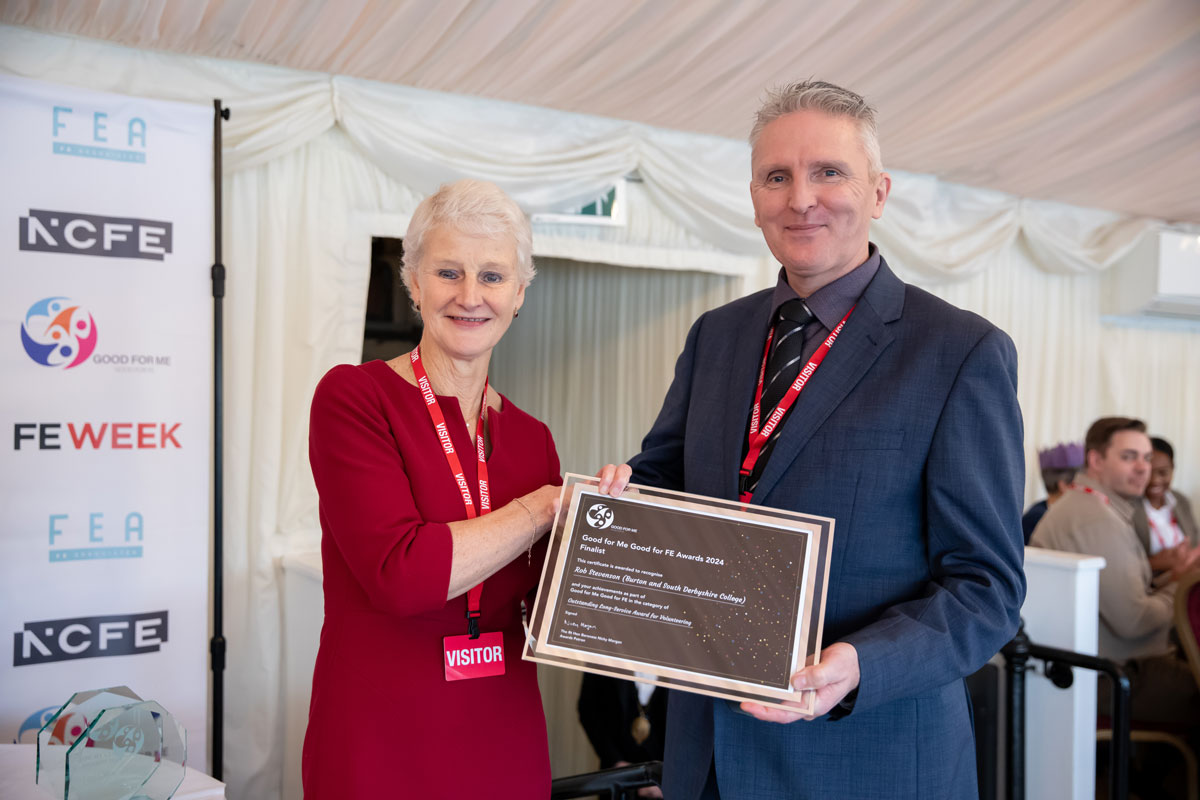£8m boost for digital student scholarships

Thirty English universities will share an £8.1 million fund to invest in artificial intelligence (AI) and data science postgraduate conversion course scholarships to increase diversity.
This funding from the Department for Science, Innovation and Technology (DSIT) and Office for Artificial Intelligence (OAI) is being awarded by the Office for Students (OfS) to universities to deliver the AI and data science scholarships.
In 2019 the OfS launched a funding competition that aimed to increase diversity and address digital skills gaps in the workforce, which supported the government’s priority to invest in AI to encourage innovation in every sector and region. The programme funded up to 1,000 scholarships at 28 universities designed to encourage more women, Black students and disabled students to study AI and data science. This programme has awarded 888 student scholarships up to 31 December 2022.
The postgraduate conversion course programme has exceeded recruitment targets with 6,317 students enrolled on AI and data science courses until 31 December 2022. Of the 28 universities across England currently offering the courses, over two-thirds (70 per cent) of the total UK-domiciled scholarship students enrolled across the programme are women. Thirty-five per cent are Black students and 26 per cent are disabled. This is much higher than the tech workforce as a whole.
Following the success of the initial programme, DSIT has announced a funding package worth up to £17 million between April 2023 and March 2025 for up to 2,000 additional scholarships. The OfS launched a funding competition in September 2022 to invite universities and colleges to bid for funding to deliver scholarships. After a competitive selection process, the OfS will provide £8.1 million funding for up to 817 scholarships, worth £10,000 each for the 2023-24 academic year. 30 universities have been awarded a share of the funding to deliver scholarships to eligible underrepresented groups in the 2023-24 academic year, with further funding for 2024-25 subject to confirmation. The scholarship eligibility criteria has been widened to include students from lower socioeconomic backgrounds to provide further opportunities for students from this underrepresented group.
Students can study at a range of courses across England which cover topics such as practical AI and data science skills, coding, programming, machine learning, health data science and AI ethics. Courses are delivered flexibly in a variety of ways including full-time, part-time and online learning options to support students with other work or caring responsibilities. 58 new courses have been awarded funding through the competition, including:
- MSc Health Data Science at University of Exeter
- MSc Responsible Data Science at University of Birmingham
- MSc Digital Finance at Loughborough University.
Engineering and tech companies have pledged investment in the programme with funding leveraged through an OfS-commissioned employer engagement partner, Group GTI. Employers are encouraged to take part in the programme and co-fund the scholarships to benefit from the opportunity to upskill their workforce, source and support diverse talent in their local community and address the digital skills gap.
John Blake, director for fair access and participation at the OfS, said:
‘This funding provides opportunities for students underrepresented in these industries to achieve their career aspirations. This funding builds on the successes of the programme’s recent students, and provides the UK’s data science and AI sector with a wider pool of highly skilled graduates.
‘Following a competitive bidding process, we are investing an initial £8.1 million in 30 universities to deliver high quality conversion courses that lead to positive outcomes for students. This funding will enhance the relationships established between universities and employers that are vital for the success of this industry.
‘Universities have responded to the various needs of these students, such as offering flexible learning for mature students and for those with caring responsibilities. Early evidence suggests students from the priority groups are successfully completing their courses and connecting with employers. We encourage more employers to get involved to nurture this talent and help train the digital workforce of tomorrow.’
Minister for AI at DSIT, Jonathan Camrose said:
‘AI is increasingly being used to boost productivity and unlock growth in British industries. People from all walks of life should be able to access the exciting job opportunities this transformative technology is creating across the country.
‘We’re investing millions to champion people underrepresented in tech so they get the skills to start a career in AI. I urge businesses to back the talent of tomorrow and offer their support for these important scholarships.’
Enginuity, an engineering skills charity from the north east of England, has partnered with Teesside University to fund scholarships. Chief executive of Enginuity, Ann Watson said:
‘Enginuity is delighted to be funding two scholarships in partnership with Teesside University. As an engineering skills charity this programme aligns completely with our charitable objects in both supporting engineering small and medium enterprises gain access to much needed skills and talent and providing new career opportunities for those accessing the scholarship.’











Responses